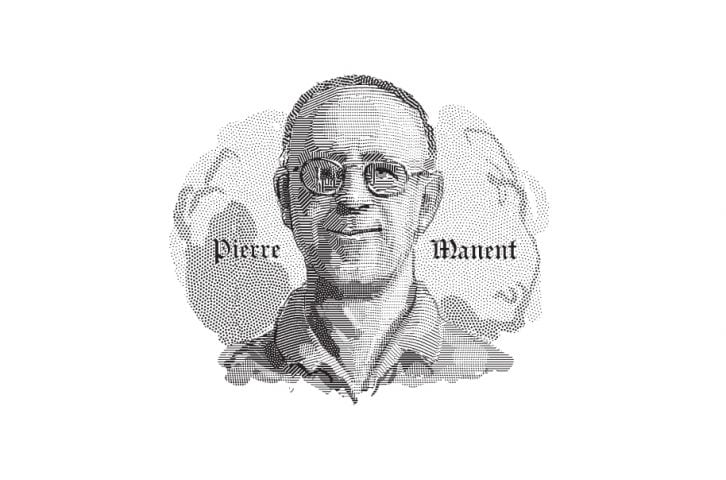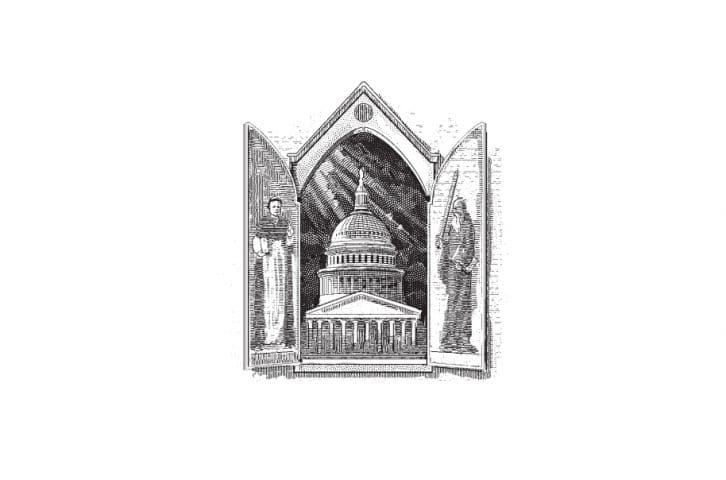Books Reviewed
A review of Dante: the Poet, the Political Thinker, the Man, by Barbara Reynolds
Barbara Reynolds, a distinguished Italianist who has taught for years at Cambridge University, is well known in Dante circles and beyond. Her translation of Ariosto is simply a classic. As a dantista, she translated 13 cantos of Paradiso that were left unfinished by the premature death of her friend and occasional student Dorothy L. Sayers, who is still known to her admirers as DLS. One infers that the conversation between these two impressive women continues, as it were, beyond the grave. Sayers started her career writing detective novels but eventually gave up her tales of the idiosyncratic Lord Peter Wimsey, master sleuth, collector of ancient manuscripts, and connoisseur of Bach and Scarlatti. Under the influence of C. S. Lewis, Charles Williams, the Blackfriar Kenelm Foster, and, finally, Barbara Reynolds, Sayers turned into a leading, imaginative scholar of Dante.
She pursued her new intellectual role with the zeal of a missionary. To Sayers, Dante's poetry was a kind of miracle, transcending time and place to keep medieval wisdom alive in our war-ravaged modernity. Sayers's The Mind of the Maker (1941) argued that Christian theology, and especially Dante's feminine version of that theology, is the deepest mystery, far surpassing the adventures of her detective. This argumentum ad mysticum became the centerpiece of Reynolds's biography of Sayers,The Passionate Intellect: Dorothy L. Sayers' Encounter with Dante (1989), a remarkable work that combined biography and riddles. Reynolds grasped with great clarity Sayers's insight: in a novelistic riddle, however puzzling, you can hit upon a solution, especially if you follow the guideline of a thread given beforehand. A theological mystery (as with the mystery of a man's life), by contrast, places you in an uncharted region of unfathomable, labyrinthine complexities.
In her new book, which she calls a portrait of Dante, Reynolds writes with the confidence of a scholar who has attained an objective, de-romanticized standpoint on Dante and his world, and in the process she breaks new ground. She sheds light on some old textual cruxes, such as the meaning of Virgil's prophecy of the "veltro" (hound) in Hell. And with an impish smile, she suggests that Dante's visionary experiences, much like those of Aldous Huxley in the 20th century, were the result of mind-altering substances, a medieval variant of LSD. Over 56 chapters corresponding to the 56 years of Dante's earthly life, she explores his political passions, his involvement in Florence's dangerous politics, his rhetorical poses and "showmanship" as a whole.
The interpretive disagreements between these two friends, leaving aside temperamental differences, reflect the persistence of two divergent rhetorical models: the mid-14th century, fairly fictional Life of Dante by Boccaccio, and the early 15th-century biography written by the Florentine historian and civil humanist, Leonardo Bruni. Boccaccio wanted to make novelistic sense of Dante's poetry and imagined his life as if it had been spent in unceasing service to the Muses. By contrast, Bruni rooted Dante's life in the reality of Florence's political and intellectual history. Barbara Reynolds's biography falls into Bruni's fold, though paradoxically she casts herself as a follower of Boccaccio, perhaps because unlike Bruni but like Boccaccio, she does not believe in the redemptive value of politics. In the process, she conveys a startling image of Dante's multifaceted personality—"the poet, the political thinker, the man." She rejects the view that finds in him a unified moral or philosophical or theological consciousness, and thus parts company with her old friend's unifying emphasis on the "mind of the maker."
* * *
These differences lie at the heart of the persistent fascination Dante exerts on contemporary readers. Nor is it likely that they can be erased, for they largely depend on the ambiguities in Dante's own self-dramatization. In the Divine Comedy, he casts himself as a mythical hero. Like the fictional heroes of old—Aeneas, Beowulf, Gilgamesh, Roland—he is larger than life. At the same time, however, we know more about his actual biography than we do, say, about the lives of his poetic peers, Homer and Shakespeare. However meager, some biographical details about Dante go unchallenged: he was married, had children, fought in the military campaign of Campaldino against the Aretines (June 1289), enrolled in a guild (1295), began a political career, craved recognition, was notoriously litigious, and in 1302, while on an embassy to the papal court and thanks to the maneuvers of Pope Boniface VIII, was exiled from his native city. In short, as a poet and citizen Dante comes across as so thoroughly human, so much a part of history and so much like us, that to this day we want to get closer to him. The disparity between his ordinariness and his extraordinary visionary powers nourishes our fascination.
To get past this paradox, we might start from Dante's exile, which lasted till his death in Ravenna in 1321. Despite its crushing fatality, it functioned in many ways as a blessing in disguise. It made it easy for him to transcend the tragic particularisms of local, Florentine history, and gave him a way out of the darkness of partisan poses. What's more, the exile opens a window on Dante's education, which he got first at the knee of humanists, such as Brunetto Latini, and, a little later, from theologians, such as the unorthodox Franciscan friar Olivi. It was no doubt Olivi who, while teaching at Santa Croce in Florence from 1289 to 1297, helped shape Dante's thought, providing a critical perspective on Latini's Ciceronian and Florence-based political paradigms as well as a visionary warning against the "carnal" Church, reluctant to strip herself of material wealth and purify herself into the spiritual Church at the end of time.
Barbara Reynolds's intellectual biography does justice to most of these questions, evoking the constellation of thinkers figuring in Dante's consciousness. These disparate figures allow her to argue that Dante moves in the uncertain boundary between the physical and the metaphysical, the immanent and the transcendent. It is within this context that her astounding suggestion, a guess really, about Dante's mystical vision arising from mind-altering drugs, makes some—although not much—sense. The idea implies, of course, without defending, the skeptical notion that there is no such thing as a transcendent experience. One wonders, however, how Dorothy Sayers, who well understood Dante's sense of beauty as a power shattering the dualism of object and subject, would view her dear friend's impoverishing, though attention-grabbing, suggestion. DLS would probably say that there's always a riddle and that a true riddle cannot be solved. Barbara Reynolds would probably agree. But neither of them, alas, would even consider the possibility that Dante is not merely some kind of mystic.


